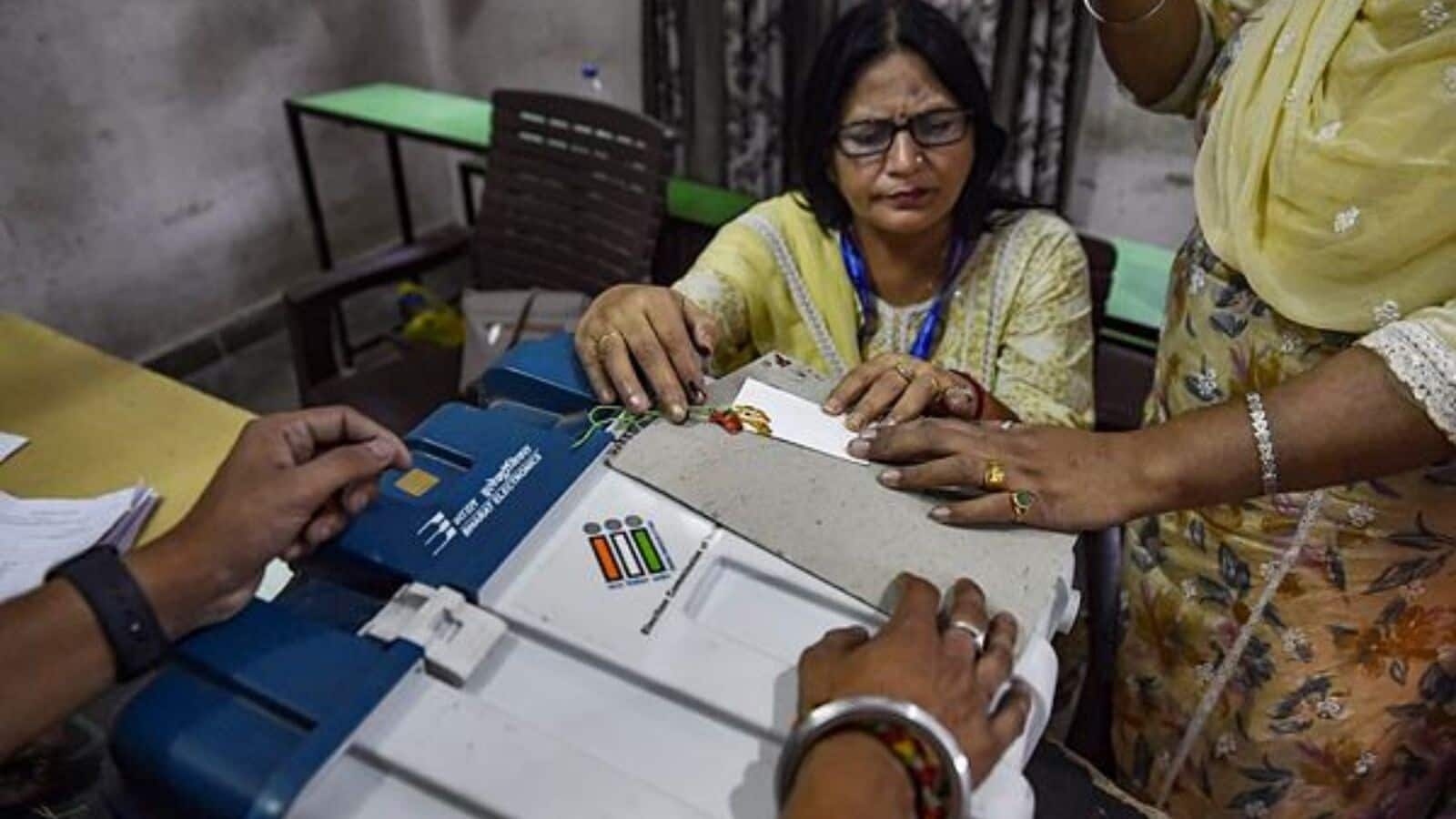
ECI receives 8 pleas seeking verification of EVMs, VVPAT units
What's the story
The Election Commission of India (ECI) has received eight applications for verification of electronic voting machines (EVMs) and Voter Verifiable Paper Audit Trail (VVPAT) units' burnt memory from candidates in the 2024 Lok Sabha elections.
This is the first instance of such requests since a Supreme Court order in April allowed runners-up to seek verification.
The Bharatiya Janata Party, the Congress, the DMDK, and the YSR Congress Party (YSRCP) candidates have filed these applications, the ECI said.
Verification timeline
Verification process to begin within four weeks
The ECI has forwarded these applications to the chief electoral officers (CEOs), who have informed the EVM manufacturers.
"Checking and verification process can be initiated within 4 weeks of verification of status of Election Petition filed in the respective constituencies," the ECI said.
The deadline for filing an Election Petition for this election cycle was July 19 (Wednesday).
Allegations
Report on EVM 'hacking' triggers row
Recently, a political slugfest has erupted over allegations of electronic voting machine (EVM) hacking in the Mumbai North West Lok Sabha seat.
The BJP and the opposition parties engaged in a war of words after a report by Mid-Day newspaper alleged that a relative of Ravindra Waikar—the winning Shiv Sena candidate—was found using a mobile phone "connected" to an EVM during vote counting on June 4.
Newspaper report
What does the Mid-Day report say
According to the newspaper, Waikar's brother-in-law, Mangesh Pandilkar, used a mobile phone to "unlock" an EVM on vote counting day.
Returning Officer Vandana Suryavanshi and Mumbai Police have dismissed the allegations.
However, Pandilkar and poll official Dinesh Gurav have been booked by the Vanrai Police under Section 188 of the Indian Penal Code for violating the Election Commission of India's ban on mobile phones inside counting centers.
Congress leaders react
Concerns being raised about electoral process' transparency: Rahul Gandhi
Reacting to the controversy, senior Congress leader Rahul Gandhi had said in an X post last week, "EVMs in India are a 'black box'...nobody is allowed to scrutinize them....concerns are being raised about transparency in our electoral process. Democracy ends up becoming a sham and prone to fraud when institutions lack accountability."
Tesla CEO's statement
Musk calls for elimination of EVMs
Notably, Elon Musk, CEO of Tesla and SpaceX, had also joined in the discussion on EVMs calling for the elimination of the machines in the electoral process.
In a recent post on X, Musk had said, "We should eliminate electronic voting machines. The risk of being hacked by humans or AI, while small, is still too high."
Musk was responding to Robert F Kennedy Jr's post on X, which flagged irregularities in the EVMs used in Puerto Rico's primary elections.
Counter-argument
BJP leader responds to Musk's remarks
Responding to Musk's statement, BJP leader Rajeev Chandrasekhar had said the billionaire entrepreneur's remarks are a "sweeping generalization statement that implies no one can build secure digital hardware."
"Musk's view may apply to US [the United States] and other places—where they use regular compute platforms to build Internet connected Voting machines."
"But Indian EVMs are custom designed, secure and isolated from any network or media. Factory programmed controllers that cannot be reprogrammed," he wrote.
Background
SC addresses row around EVMs
To recall, the reliability of EMVs had also been a source of contention in India, with the opposition seeking the old electoral method using paper ballots.
However, in April of this year, the Supreme Court expressed its unwillingness to pass any ruling regarding EVMs solely on the basis of alleged hacking and manipulation.
At the same time, it noted that it would not hesitate to ensure steps for improvement if it felt the need for such.